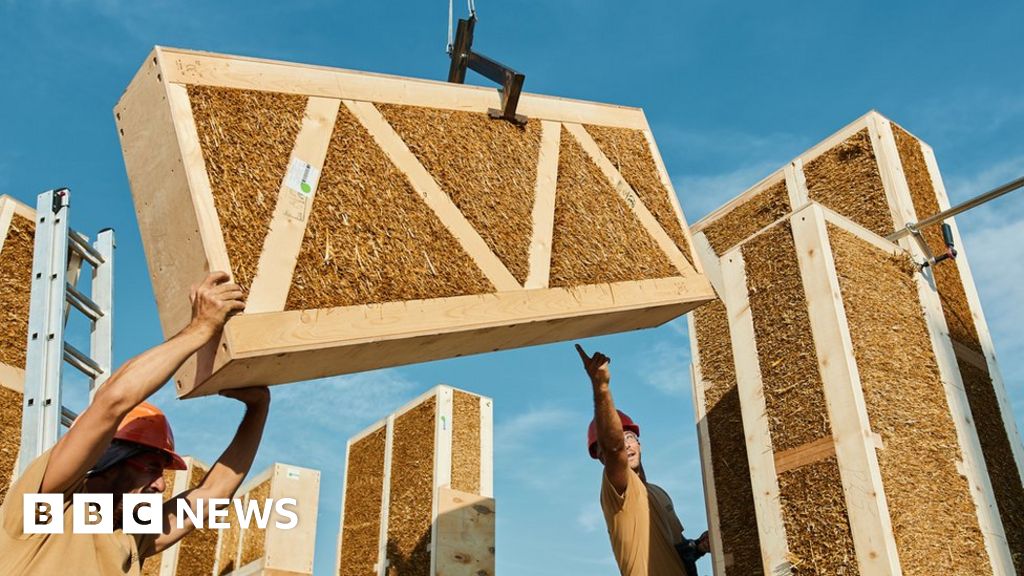This didn’t seem quite serious enough for UK, but it’s kinda neat.
Big Bad Wolf could not be reached for comment.
And as Insulation seems to have become my Special Interest at the moment, I dug into the material a little more.
It’s supposed to be installed 400mm thick.
It has a transmission value of 0.12WMK.
So 400mm on the outside of the house is equivalent to…150mm of glassfibre or 75mm of cellotex.
As it’s vapor permeable, it shouldn’t have any of the damp issues poorly installed insulation suffers from.
So, if you can get away with the look, and have the space outside, it’s a pretty cool (/warm) material.



This is the best summary I could come up with:
Barbara Jones and her colleagues at Todmorden Learning Centre and Community Hub have hatched a plan to clad the college, built in the 1950s, in more than 1,600 sq metres of straw-stuffed panels - to better insulate it.
In panel systems, relatively short pieces of straw are packed together at just the right density, about 110 kg per metre cubed, so that the volume of air inside creates an insulating effect.
When it comes to new builds, however, rival firm Agile Property and Homes, which offers straw-stuffed panels previously marketed under the brand name ModCell, argues that incoming construction standards are likely to demand higher insulation levels in walls.
Consumers may be hesitant about buying a home built with lots of straw in the walls, suggests Richard Fitton, an expert in building physics at the University of Salford.
His own research suggests that straw does not present a significant fire risk and he points out that newer, panel-style systems featuring the material could be attractive to developers looking to reduce their environmental impact.
Because a large number of panels can be moved on a single truck from EcoCocon’s facilities in Central Europe, Ms Jones says the carbon savings achievable are still good.
The original article contains 946 words, the summary contains 202 words. Saved 79%. I’m a bot and I’m open source!